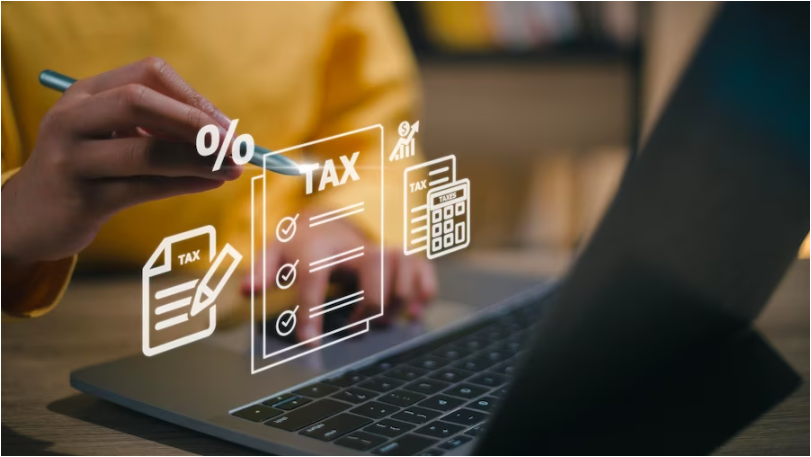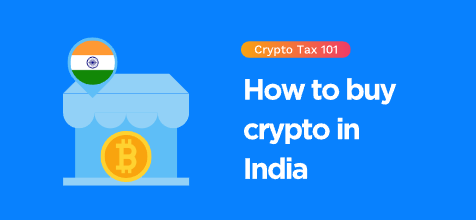AUTHOR : BILLIE EILLISH
Introdution
Cryptocurrency has gained tremendous popularity in India over recent years, thanks to its potential for high returns and its innovative technology[1]. However, with its growing adoption, ensuring that you buy and manage your cryptocurrency securely has become paramount. This guide provides a step-by-step approach to buying cryptocurrency[2] securely in India.
Understanding the Basics of Cryptocurrency
Before you dive into buying cryptocurrency[3], it’s essential to understand what it is and how it works. Cryptocurrencies are digital or virtual currencies that use cryptography[4] for security. They operate on a technology called blockchain, which is a decentralized ledger of all transactions across a network of computers. The most well-known cryptocurrencies include Bitcoin[5], Ethereum, and Ripple
Research and Choose the Right Cryptocurrency
There are thousands of cryptocurrencies available in the market, each with its own unique features and purposes. While Bitcoin and Ethereum are the most popular and widely recognized, others like Cardano, Polkadot, and Solana have also gained traction. Research the different cryptocurrencies to understand their use cases, market trends, and potential for growth.
Select a Reliable Exchange

Choosing a reliable cryptocurrency exchange is crucial for a secure purchase. Here are some factors to consider when selecting an exchange:
- Regulation: Ensure the exchange is compliant with Indian regulations and adheres to financial laws.
- Security: Look for exchanges with robust security measures, such as two-factor authentication (2FA) and cold storage of assets.
- Reputation: Check reviews and ratings from other users to gauge the exchange’s reliability.
- Fees: Compare transaction fees and deposit and withdrawal fees to find an exchange that offers competitive rates.
- User Experience: Choose an exchange with a user-friendly interface and responsive customer support.
Popular exchanges in India include WazirX, CoinDCX, and ZebPay. Each has its strengths, so assess them based on your needs.
Create and Secure Your Account
Once you’ve selected an exchange, the next step is to create an account. Follow these steps:
- Sign Up: Register on the exchange by providing your email address and setting a strong password.
- KYC Verification: Complete the Know Your Customer (KYC) process by submitting identification documents such as a passport, Aadhaar card, or driver’s license. This step is mandatory for most exchanges to comply with anti-money laundering (AML) regulations.
- Enable 2FA: Activate two-factor authentication to add an extra layer of security to your account.
Secure Your Investments with a Wallet
While exchanges provide a convenient way to buy and trade cryptocurrencies[1], it’s safer to store your assets in a personal wallet. There are two main types of wallets:
- Hot Wallets: These are online wallets connected to the internet. They are convenient for frequent transactions but can be vulnerable to hacking.
- Cold Wallets: These are offline wallets, such as hardware wallets (e.g., Ledger, Trezor) or paper wallets. They provide enhanced security as they are not connected to the internet.
For long-term storage, consider using a cold wallet to protect your assets from potential online threats[2].
Make Your Purchase

With your account set up and your wallet secured, you can now buy cryptocurrency[3]. Follow these steps:
- Deposit Funds: Transfer Indian Rupees (INR) to your exchange account using a bank transfer or other supported methods.
- Choose your cryptocurrency: Select the cryptocurrency you want to buy and specify the amount.
- Place an Order: Execute a market order (buy at the current market price) or a limit order (buy at a specific price) based on your preference.
- Confirm the Transaction: Review and confirm the details of your transaction before finalizing the purchase.
Transfer Your Cryptocurrency to Your Wallet
Once your purchase is complete, transfer the cryptocurrency[4] from the exchange to your personal wallet. This step reduces the risk of losing your assets in case of an exchange hack or operational issues. To transfer, you’ll need your wallet’s public address, which you can find in your wallet application[5].
Stay Informed and Monitor Your Investments
The cryptocurrency market is highly volatile, so staying informed about market trends and news is essential. Follow reliable news sources, join cryptocurrency communities, and monitor your investments regularly. Be cautious of market manipulation, scams, and fraudulent schemes.
Practice Safe Trading
When trading or investing in cryptocurrency, follow these best practices:
- Avoid FOMO: Fear of missing out can lead to impulsive decisions. Make informed choices based on thorough research.
- Diversify: Don’t put all your money into one cryptocurrency. Diversifying your investments can help manage risk.
- Beware of Scams: Be cautious of offers that seem too good to be true and avoid sharing your private keys or sensitive information with anyone.
Comply with Tax Regulations

In India, cryptocurrency transactions are subject to tax regulations. The Income Tax Department has clarified that gains from cryptocurrency trading are taxable. Keep detailed records of all your transactions, including purchase dates, amounts, and sale prices. Consult a tax professional to ensure compliance with Indian tax laws and to accurately report your gains.
Conclusion
Buying cryptocurrency securely in India requires careful planning and adherence to best practices. By understanding the basics, choosing a reliable exchange, securing your assets with a personal wallet, and staying informed, you can minimize risks and make informed investment decisions. Always be cautious and do your research before making any financial commitments in the cryptocurrency space.
FAQ
1. What is the safest way to store my cryptocurrency?
The safest way to store your cryptocurrency is using a cold wallet, such as a hardware wallet or a paper wallet. Cold wallets are not connected to the internet, reducing the risk of hacking. For everyday transactions, you can use a hot wallet, but it’s recommended to keep the bulk of your assets in a cold wallet for security.
2. How do I choose a reliable cryptocurrency exchange in India?
To choose a reliable cryptocurrency exchange, consider the following factors:
- Regulation: Ensure the exchange complies with Indian regulations.
- Security: Look for features like two-factor authentication (2FA) and cold storage.
- Reputation: Read user reviews and ratings.
- Fees: Compare transaction and withdrawal fees.
- User Experience: Choose an exchange with an intuitive interface and good customer support.
3. Are there any regulations for cryptocurrency trading in India?
Yes, cryptocurrency trading in India is subject to regulatory scrutiny. The Income Tax Department requires that gains from cryptocurrency transactions be reported and taxed. The Reserve Bank of India (RBI) and the Securities and Exchange Board of India (SEBI) have also issued guidelines and advisories regarding cryptocurrency use. It’s essential to stay updated on regulations and ensure compliance.
4. What should I do if I forget my wallet password or lose my private keys?
If you forget your wallet password or lose your private keys, it can be very challenging to recover your assets. For hot wallets, some platforms offer recovery options through customer support. For cold wallets, the recovery process is typically more complicated. Always ensure you back up your private keys and passwords in a secure place to avoid losing access to your funds.
5. Can I use Indian rupees (INR) to buy cryptocurrency?
Yes, many Indian cryptocurrency exchanges allow you to use Indian rupees (INR) to buy cryptocurrencies. You can deposit INR into your exchange account and use it to purchase cryptocurrencies directly.

